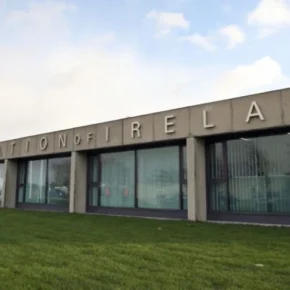Voluntary Assisted Dying — The Issues
Padraig Conlon 02 Aug 2023
Alan Tuffery
-
What is Voluntary Assisted Dying?
The Oireachtas has set up a Joint Committee on Assisted Dying to consider the issue.
I prefer the term Voluntary Assisted Dying (VAD) because it emphasises the two most important aspects.
First, it is voluntary, that is, an individual of sound mind — having legal competence — freely makes a decision that they wish to end their life within the terms of the legislation.
Second, the law would allow properly qualified people to assist them to die.
At present in Ireland anyone who helps someone to end their life risks up to 14 years in jail, even though suicide itself is not a crime.
Another commonly used term is Medical Assistance in Dying (MAiD), which emphasises the role of health-care personnel in the process.
Legalisation to allow VAD is in force in many countries in the world, for example Canada, New Zealand, all the Australian states, some states in the US, as well as The Netherlands and Belgium.
Other states are actively considering legislation.
The twin principles of the argument for permitting VAD are compassion and choice.
No-one should have to suffer a long drawn-out painful death with loss of control and personal dignity.
Such a ‘bad death’ affects not only the dying individual but their family and friends.
A ‘bad death’ is deeply damaging to the family and friends and evidence shows that it may hinder their grieving process and coming to terms with the loss of a loved one.
Everyone should have the choice to end their lives in the face of intolerable suffering or the prospect of a ‘bad death’.
The choice must be free and those who do not wish to choose VAD need not.
Individual stories of VAD tell of calmness and peacefulness with the dying person choosing the time and place of death and remaining in full control and retaining their dignity.
As one person described the medically assisted death of a very elderly friend: ‘She lived like a lady and died like a queen.’
Her last words were: “Thank you, doctor, for helping me to end my life.” See https://www.youtube.com/watch?v=I-j83Dyt5x8&feature=youtu.be
The conditions for allowing VAD vary in different countries — from terminal illness with a prognosis of not more than six months to live to intolerable suffering with no reasonable prospect of relief.
In later articles, I will look at the implication of these conditions and discuss how they have worked out in various countries.
We in Ireland are very fortunate in that there is a great deal of experience of VAD internationally and we can draw upon not only the actual legislation but also the experience of VAD.












